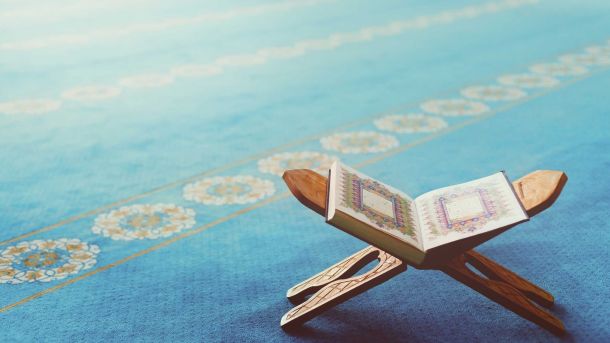News Archive
Mar 9, 2014
Salafiyyah Is the Middle Path
Note: the first 15 minutes of this audio has some distortion/breaks, the rest of the audio is intact.
Mar 7, 2014
How to Stop the Fundraisers and Donation Pleas?
From the points discussed:
We have needs to ask the people to come together to service the daʿwah (masjids, schools etc.) or an obligation to assist the poor etc. They are communal obligations
The optimal situation is one where daʿwah is able to be made, free of the message of requests for donations
There are people who have gone overboard in their criticism of organisations who fundraise (due to a need)
It is our stinginess (as communities) that makes it inappropriate to attack Islamic centres when they raise funds (i.e. if communities handled the expenses, there should be no nee…
Mar 1, 2014
Etiquettes for Good Companionship (آداب الصحبة)
Understand that from the etiquettes for good companionship is coming together and feeling for one another. This is from the results and fruits of having a good character which causes further love for one another. Its opposite is division and splitting, which is the result and evil consequence of having a bad character which causes hatred between one another.
Collected from Imam al-Tirmidhī, which he has authenticated, upon the authority of Abū Dardaa that the Prophet (sallāllahu ʿalayhi wa-sallam) said, “There is nothing that will weigh heavier on the scales than good character”.
Also sho…
Feb 20, 2014
Beware the Perils of the Internet
The speaker introduces his sermon reminding the listener to “be careful of following most of the people”. This being a prelude of what is to follow as it relates to heedlessness in the online world.
وَإِن تُطِعْ أَكْثَرَ مَن فِي الْأَرْضِ يُضِلُّوكَ عَن سَبِيلِ اللَّـهِ ۚ إِن يَتَّبِعُونَ إِلَّا الظَّنَّ وَإِنْ هُمْ إِلَّا يَخْرُصُونَ
And if you obey most of those on earth, they will mislead you far away from Allāh’s Path. They follow nothing but conjectures, and they do nothing but lie.
[al-An’ām, 6:116]
He continues, “If we were to analyse Social media networks, we would see thi…
Feb 2, 2014
The Prayer of Repentance – Its Descriptions and Rulings
There is not a man who commits a sin then purifies himself, stands and prays [two rakʿah], and then asks Allāh for forgiveness except that Allāh will forgive him.
Shaykh Ḥasan al-Ṣumālī
View/Download | 8 Pages
Jan 28, 2014
A Description of the Believers as Mentioned in the Qurʾān
الم ﴿١﴾ ذَٰلِكَ الْكِتَابُ لَا رَيْبَ ۛ فِيهِ ۛ هُدًى لِّلْمُتَّقِينَ ﴿٢﴾ الَّذِينَ يُؤْمِنُونَ بِالْغَيْبِ وَيُقِيمُونَ الصَّلَاةَ وَمِمَّا رَزَقْنَاهُمْ يُنفِقُونَ ﴿٣﴾
Alif-Lam-Mim. [These letters are one of the miracles of the Qurʾān and none but Allāh (Alone) knows their meanings]. This is the Book (the Qurʾān), whereof there is no doubt, a guidance to those who are Al-Muttaqun [the pious and righteous persons who fear Allāh much (abstain from all kinds of sins and evil deeds which He has forbidden) and love Allāh much (perform all kin…








